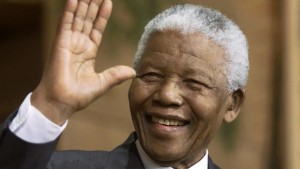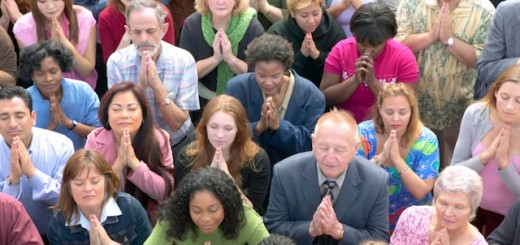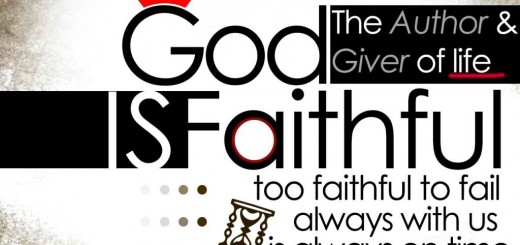The tables are turned!
 How quickly things have changed! It’s all completely different in Esther chapter 8. The tables have turned. The king now knows that Esther is a Jew – and is OK with that. More than OK. He honours her and gives her Haman’s estate. As for Haman, the evil Haman, he has been found out and executed for his crimes. Mordecai is no longer the victim, but his relationship with Esther as her uncle has been revealed and he has been given the ultimate respect and honour by the king in the form of the king’s signet ring. The plan to exterminate the Jews has been revoked. Now the Jews are commanded to use an appropriate level of self-defence and self-preservation. In writing so that there is no misunderstanding.
How quickly things have changed! It’s all completely different in Esther chapter 8. The tables have turned. The king now knows that Esther is a Jew – and is OK with that. More than OK. He honours her and gives her Haman’s estate. As for Haman, the evil Haman, he has been found out and executed for his crimes. Mordecai is no longer the victim, but his relationship with Esther as her uncle has been revealed and he has been given the ultimate respect and honour by the king in the form of the king’s signet ring. The plan to exterminate the Jews has been revoked. Now the Jews are commanded to use an appropriate level of self-defence and self-preservation. In writing so that there is no misunderstanding.
Mordecai wrote under the name of King Xerxes and sealed the order with the royal signet ring; he sent out the bulletins by couriers on horseback, riding the fastest royal steeds bred from the royal stud.
The king’s order authorised the Jews in every city to arm and defend themselves to the death, killing anyone who threatened them or their women and children, and confiscating for themselves anything owned by their enemies. Esther 8:10-13
Mordecai is no longer sitting at the king’s gate –
Mordecai walked out of the king’s presence wearing a royal robe of violet and white, a huge gold crown, and a purple cape of fine linen. Esther 8:15
 And the response? No more sackcloth and sorrow, that’s for sure!
And the response? No more sackcloth and sorrow, that’s for sure!
The city of Susa exploded with joy. For Jews it was all sunshine and laughter: they celebrated, they were honored. It was that way all over the country, in every province, every city when the king’s bulletin was posted: the Jews took to the streets in celebration, cheering, and feasting. Not only that, but many non-Jews became Jews—now it was dangerous not to be a Jew! Esther 8:16-17
This was big, big news. Good news. The best news. God had again delivered His people. Justice had been done. They had been saved. Now it was cool to be a Jew! The best option even!
 As I’ve been reading and writing this, I’ve been thinking about when apartheid was overthrown in South Africa. The indigenous people had finally been delivered from oppression and exploitation and the humility of segregation. Nelson Mandela and other leaders had been set free. The dignity of the people had been restored. The world was celebrating with the people on the streets. This was big, big news. Impossible news, it has seemed. A long time in coming. Far too long. The people could now defend themselves and preserve their identity. The people would now have a voice.
As I’ve been reading and writing this, I’ve been thinking about when apartheid was overthrown in South Africa. The indigenous people had finally been delivered from oppression and exploitation and the humility of segregation. Nelson Mandela and other leaders had been set free. The dignity of the people had been restored. The world was celebrating with the people on the streets. This was big, big news. Impossible news, it has seemed. A long time in coming. Far too long. The people could now defend themselves and preserve their identity. The people would now have a voice.
But for some, this was not enough. They needed revenge. Their tormentors had to pay. Their joy was mixed with bitterness and anger. Nelson Mandela was heavily criticised for working with the enemy, for compromising with the whites, for collaborating with his enemies. When Nelson Mandela was released from prison in 1990, many took to the streets seeking violent retaliation against the unjust system. Mandela spoke out against this violence. He recognised the torment the people had faced – he set up a Truth and Reconciliation commission – but that was not about violent retribution but about discovering the truth and working for reconciliation. He actively worked for peace. But this was not enough for many. He still seemed weak to those with revenge in their hearts.
Across the world however, he became an inspiring symbol of tolerance and humanity. How could he sit in the same room as those who had kept him incarcerated for so long? How could he treat those who had caused him and his family and friends to suffer so much with respect? Because this whole thing was bigger than him. He believed in love and peace and would put aside his own anger and resentment to reach his goal.
And so in 1993, the man who had been Mandela’s arch enemy was able to say these words –
What is taking place in South Africa is such a deed – a deed resounding over the earth — a deed of peace. It brings hope to all South Africans. It opens new horizons for Sub-Saharan Africa. It has the capacity to unlock the tremendous potential of our country and our region. The new era which is dawning in our country, beneath the great southern stars, will lift us out of the silent grief of our past and into a future in which there will be opportunity and space for joy and beauty – for real and lasting peace.
F. W. DeKlerk, Nobel lecture, 1993
And I say all this, because when the tables are turned, our thoughts often turn to revenge. To getting our own back. To making our enemies pay. And yet that is not God’s way. God’s way is forgiveness. A new era of reconciliation. An opportunity for joy and beauty. Space for real and lasting peace. Hope. New horizons. The opportunity to do it differently. God’s way.
Just imagine the tremendous potential that would unlock in our hearts and in our world.












